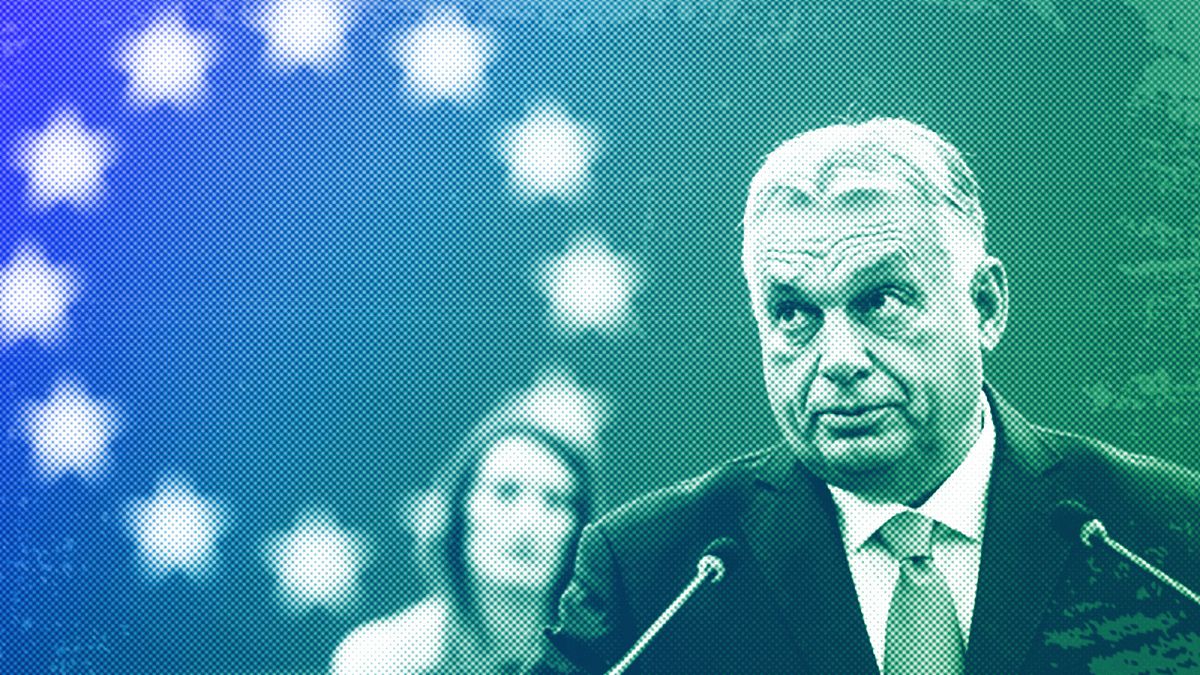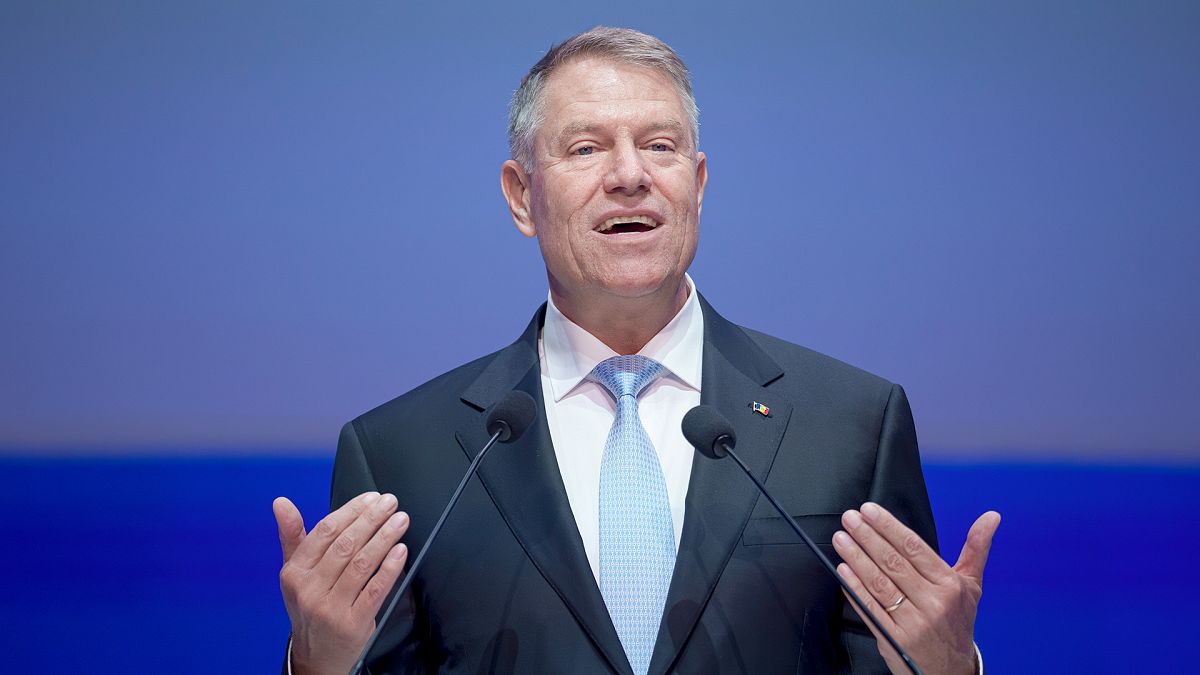Putin’s Central European vanguard threatens to expand into Czechia
A growing Kremlin-friendly bloc in Central Europe would pose a major problem for the EU.
The pro-Russia bloc at the heart of Europe is forecast to grow in 2025.
Kremlin-friendly Central European leaders such as Hungarian Prime Minister Viktor Orbán and his Slovak counterpart Robert Fico are set to be joined next year by a familiar face: Former Czech Prime Minister Andrej Babiš, who is surging again in national polls.
While Babiš, a billionaire political chameleon, is less ideologically rooted than Orbán or Fico, he has tilted his party firmly to the right and is echoing rhetoric by his counterparts in Hungary and Slovakia.
Just like Orbán, Babiš says that if Donald Trump were U.S. president there would be no Russian war in Ukraine, and believes that an electoral victory by the Republican candidate in November would ensure peace. And like Fico, the Czech mogul has previously signaled a preference for reducing support for Ukraine as it resists the Kremlin’s full-scale invasion.
Top Czech officials have attempted to discredit Babiš — a controversial agriculture tycoon who was prime minister from 2017 until 2021 — as being in Orbán’s pocket since his Action of Dissatisfied Citizens (ANO) party joined the Hungarian leader’s new hard-right, anti-migration Patriots faction in Brussels this summer.
“The ANO movement is just Orbán’s puppet,” Czech Foreign Minister Jan Lipavský told POLITICO. “They have clearly found friends among pro-Russian nationalists and xenophobes” in the European Parliament, he added.

But Czech voters are returning to Babiš in droves, according to the results of recent regional elections, ahead of a nationwide parliamentary vote in 2025.
The former prime minister and his opposition ANO scored a landslide victory in 10 of the country’s 13 regions on 35 percent of the vote in September, up sharply from 21 percent in the last regional elections in 2020. It was a wake-up call for the current ruling coalition — and for Brussels.
The current government of Prime Minister Petr Fiala, a Ukraine-supporting conservative, has a record-low popularity rating of 24 percent, the worst of all Czech governments since 2013, owing to poor communication and a broken promise not to raise taxes.
That boosts Babiš’ chances of grabbing power, as his popularity remains stable despite his involvement in numerous scandals, including a drawn-out conflict of interest case regarding EU subsidies paid to his agricultural conglomerate in which he was eventually acquitted.
Coalition calculations
Since losing parliamentary elections in 2021, the 70-year-old Babiš has embraced a fiery rhetoric emblematic of far-right leaders, from blaming the EU for high energy prices to questioning military aid to Ukraine or railing against undocumented migration, which he wants to resolve by deploying armed forces along the beaches of Southern Europe.
Over the years, his flexible party has been described as everything from left-wing to populist, technocratic, catch-all, conservative and far-right.
By the time Babiš lost his bid to become Czech president in 2023, he was hyping up the fear of war between NATO and Russia, parroting a line popular with Moscow and its ally in Budapest, Orbán.
The link-up with the Patriots in Brussels — the far-right Austrian’s People Party is also a member and came out on top in a national election last month — was the final straw for ANO’s more liberal members.
Most have now left the party over disagreements about its political direction. Former European Parliament Vice President Dita Charanzová and MEP Martina Dlabajová both split from ANO last year, while European Commission Vice President Věra Jourová parted ways with Babiš just before the new far-right alliance was formed.
Charanzová told POLITICO that “it was clear from the developments in the Czech Republic that the ANO movement would push nationalistic politics.”
“Back when Babiš was prime minister, he wanted to form a government with the far right. Martina [Dlabajová] and I went to Prague to tell him that if he did that, some of his party members would leave him. He budged and created a government with social democrats instead,” she said.
After POLITICO reached out to Babiš and his ANO party for comment, his right-hand man, ANO Vice Chair Karel Havlíček, replied that “it’s nonsense” to say the party has moved toward the far right.

“ANO always has been and remains a catch-all party,” Havlíček said. “We are still the same. What has changed is that some politicians have lost their self-reflection and stopped perceiving reality … I think it is legitimate to have a different opinion than the EU leadership and there is no need to immediately ostracize those people.”
Petr Pavel, the country’s pro-European president who won the presidential race against Babiš in 2023, will prove a hindrance to the tycoon if he overtly tries to turn Czechia eastward. Ultimately, however, the Czech presidency does not have executive powers, leaving political leeway for the prime minister.
A cobbled-together coalition among Babiš and Czech far-right parties like Freedom and Direct Democracy or Oath and Motorists would allow him to do “what he sees fit in foreign and European policy,” according to Petr Kaniok, director of the International Institute of Political Science at Masaryk University in Brno.
“The government would certainly be at least rhetorically similar to the current Slovak one — anti-EU, more nationalist, less pro-Ukrainian and passive … The Czech Republic would simply stop doing today’s relatively constructive politics and return to Babiš’ understanding of the EU as an ATM,” Kaniok said.
No EU membership for Ukraine
While the EU appears ambivalent about the recent surge by far-right populist forces around the continent, the growing Moscow-friendly bloc will make it more difficult to reach consensus on questions like aid to Ukraine, sanctions against Russia or migration.
There are already some signs about what kind of politics ANO would adopt toward Ukraine, the critical foreign policy issue facing Europe as Russian leader Vladimir Putin’s full-scale invasion approaches its three-year anniversary.
At home, Babiš has said he hopes that “Ukraine will never become a member of the EU.”
In the European Parliament, meanwhile, two of ANO’s six MEPs abstained from a September vote on a nonbinding resolution asking member countries to approve Kyiv’s use of long-range missiles against targets on Russian territory. The other four didn’t even show up for the vote.

They also abstained or did not attend voting on a resolution in July on the need for the EU to continue supporting Ukraine.
“The vote included a commitment to give a mandatory share of GDP to Ukraine from the state budget. Why should anyone dictate that to us? We will determine how we want to help ourselves,” Babiš said in an interview with a Czech media outlet when asked why his MEPs hadn’t shown up for the vote.
Ondřej Knotek, an MEP for the ANO party, pushed back against suggestions the party is pro-Russian.
“Any attempts to defame us and say we are pro-Russian, pro-Chinese, or, I don’t know, pro-Antarctic just reflect the fears of the fact that we have formed the third-strongest group in the Parliament,” Knotek said.
He added that ANO is pro-European, and in no way extremist or far right.
That sparked derision from Kaniok, the political scientist, who said a new Babiš administration could target “institutions such as the judiciary [and] public media” like his kindred spirits in Budapest and Bratislava.
“They [ANO] used to have a positive vision, which is why they had liberal voters … now it’s a movement of fear.”
What's Your Reaction?




















































